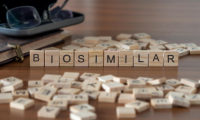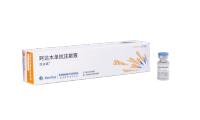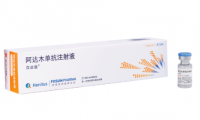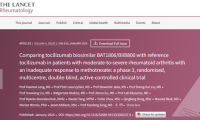-
FDA Approves Fresenius Kabi’s Tyenne, a Biosimilar of Actemra for the Treatment of Autoimmune Diseases
- Source: drugdu
- 172
- March 11, 2024
-
FDA Approves Sandoz Biosimilars for Two Blockbuster Amgen Bone Drugs
- Source: drugdu
- 136
- March 7, 2024
-
Henlius Adalimumab Biosimilar Received sNDA Acceptance Notification from the NMPA
- Source: drugdu
- 78
- March 6, 2024
-
Henlius Adalimumab Biosimilar Received sNDA Acceptance Notification from the NMPA
- Source: drugdu
- 143
- March 2, 2024
-
Biosimilar Insulins Promise Patients New Choices, But Competition Is Still Lacking
- Source: drugdu
- 87
- January 30, 2024
-
CVS Caremark to kick AbbVie’s Humira off some formularies in favor of cheaper biosimilars
- Source: drugdu
- 142
- January 6, 2024
-
Regeneron fends off Viatris’ Eylea biosimilar with patent win
- Source: drugdu
- 167
- January 3, 2024
-
The clinical Phase III study results of the BIO-THERA Tocilizumab biosimilar, TOFIDENCE™, have been published in The Lancet Rheumatology.
- Source: drugdu
- 118
- December 22, 2023
-
First Subject Dosed for Phase 1 Clinical Trial of Henlius’ Ipilimumab Biosimilar HLX13
- Source: drugdu
- 125
- December 16, 2023
-
Samsung Bioepis, J&J Ink Settlement and License Deal for Stelara Biosimilar
- Source: drugdu
- 132
- December 4, 2023
your submission has already been received.
OK
Subscribe
Please enter a valid Email address!
Submit
The most relevant industry news & insight will be sent to you every two weeks.













